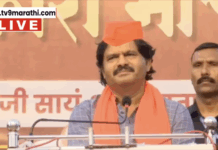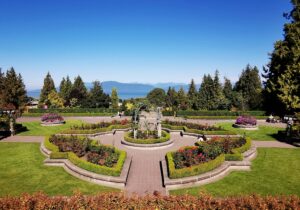
Houston, TX (ANS) – A friend and co-worker recently brought to my attention that the second most spoken command in Scripture is to “remember.” Actually, we can only live out what we can remember. So, memory is vitally important, not only for our spiritual life, but for all of life. Brain health and memory enhancement are important topics these days, and becoming more critical for older people (or as a friend likes to say, those who are more chronologically enriched). However, everyone, at any age can benefit from having a better memory, and there are certain things we can do to improve our memories.
The Value of Memorials
During my college and seminary days in the 1970s I had several part-time jobs. One of those was selling pre-need cemetery property. Many cemeteries have names such as memorial parks or garden of memories. There are many different ways of remembering people, important events, things that matter most, as well as maintaining those memories. That would apply in the corporate sense, as well as for families and individuals. For those and many other reasons, the memory industry is growing. Sculptures, art and architecture, monuments, and many other kinds of memorials are methods of being reminded and maintaining memories of important people and events.
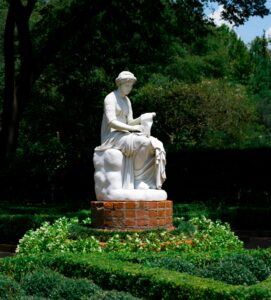
Church Traditions
In our modern world, we have many wonderful church traditions that we should remember. However, so many of them are not relevant to the essence of the Gospel and disciple making. What we understand as our Lord’s Great Commission is not complicated. It’s basically to communicate the Good News of the Kingdom to everyone and make disciples of all nations. However, it should be done in ways that are memorable, cross-cultural, transferable and reproducible to all places and every people group.
Importance of the Written Word
While the written text is important for preserving knowledge, the majority of people of the world respond best by personally engaging with the Word of God. While Bible reading and Scripture memory are valuable disciplines, there is a growing awareness that Scripture engagement and personal witness are even more important. In fact, it is more universal for learning and communicating, and is essential for the Bible-less, unreached people and the Oral Learners of the world. Learning in community enables individuals to benefit from the collective memory of the group. In our Orality journey, we’ve also discovered that in most cases, learning and processing stories from the Bible sticks in our minds better than memorizing written texts.
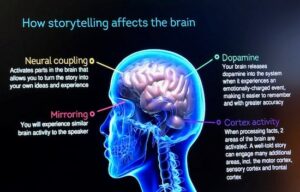
Significance of Oral Traditions and Memory Cultures
Conversation, social interaction, storytelling and repetition are all important factors in memory enhancement. In fact, research has shown that storytelling and engaging conversations are some of the best ways of activating the brain and improving memory. In a Bible Storying – Orality Training Workshop in a West African country with more than 120 participants, about half of them had Bibles and note pads. The other half were totally Oral Learners, with no Bible or note pads. It was amazing to observe how the Oral participants learned the stories better and faster than the literate participants, with their Bibles and notes.
Power of Relational, Communal Learning
Over the past decade with Living Water International’s Orality Training programs, we’ve observed how those in the more relational, communal, Oral Cultures are able to receive, process, remember and pass on the information in rapid fashion. Many times, they are able to do so more effectively than those who are more dependent on text-based resources. Consider how the Good News of Jesus spread throughout the entire populated world in the First Century, before radio, television, the printing press or other modern technological resources were available. Think about how the Lord Jesus communicated and instructed His followers. He told stories and parables, He asked questions, created community and built relationships. These are all things that we can do today. They are timeless. Repetition is another important factor for both learning and remembering. As you read through the entire Bible, think of how much is repeated in different ways. There are certain things God wants us to remember, and those important themes show up in many different places and ways

Keep the Faith – Just don’t keep it to yourself
A number of years ago a group of ministry leaders discussed how much and what are the most important things one needs to know, in order to begin a relationship with the Lord, and to become a reproducing follower of Jesus. That, not based on 2,000 years of church history, but based on what we learn from Scripture, and especially from the life, the Spirit and the teachings of Jesus. It simplifies our task, as followers of Christ, when we focus more on Him, rather than so much on church tradition. A key factor we’ve learned over the years is the value of learning a little, practicing a lot, implementing immediately and telling the stories (and God’s Story) often. Of course, it’s better to know a little that we tell to a lot of people, than to know a lot that we keep to ourselves. A good friend of mine often says, “Keep the faith, just don’t keep it to yourself.” In our Orality Training strategies we emphasize the importance of making sure our methods and message are biblical, understandable and reproducible.
Lessons from the Global South
There is a great deal we in the Global North and the Western World can learn from the Global South and the more relational, communal, Oral Cultures. The most effective ways that people have communicated, learned and remembered things throughout history are still available to us today. I was recently in a conference where one of the keynote speakers closed his message with a song. The song was, “Jesus loves me, this I know, for the Bible tells me so.” Everybody remembered that song and joined in singing it. It’s simple and memorable. In our modern world we often don’t try to remember certain things because we know we can look them up or search for them. However, there are certain things we should remember. Throughout Scripture God reinforces the importance of remembering. He has often said, “Beware least you forget” and “Remember the former things of old.”
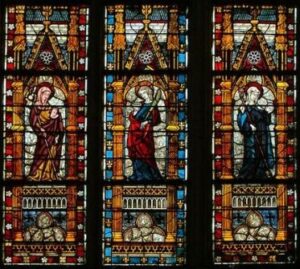
Arts and Orality for Wholistic Missions
Oral art forms are great memory devises, as well as effective methods of communicating and disciple making. The visual, performing and relational arts are all effective ways of communicating, learning, maintaining and passing on important information. Music is such a powerful tool for communicating, influencing culture and spreading the Gospel. Consider the words and messages of songs you may have heard years ago, that when you hear the music, you are reminded of the words and messages. The Holy Spirit is creative, innovative and unlimited in the ways He can use all these methods and strategies for advancing His Kingdom.
For more information about orality resources and water solutions, visit – www.orality.net — www.water.cc.





